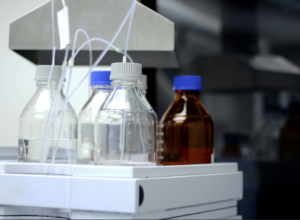In the chemical manufacturing industry, quality standards are the foundation of safety, reliability, and efficiency. Ensuring adherence to these standards is essential not only for maintaining regulatory compliance but also for fostering trust with customers and stakeholders. This blog highlights the key quality standards to look for in chemical manufacturing and their significance in delivering high-quality products.
1. ISO Certifications
ISO (International Organization for Standardization) certifications are among the most widely recognized quality standards in chemical manufacturing. Some key ISO certifications include:
- ISO 9001: Focuses on quality management systems to ensure consistent product quality and continuous improvement.
- ISO 14001: Addresses environmental management systems, ensuring the company’s operations minimize environmental impact.
- ISO 45001: Pertains to occupational health and safety, safeguarding workers and minimizing workplace hazards.
Manufacturers with these certifications demonstrate a commitment to quality, safety, and sustainability.
2. Regulatory Compliance
Compliance with national and international regulations is a non-negotiable aspect of chemical manufacturing. Manufacturers must adhere to the standards set by regulatory bodies such as:
- REACH (Registration, Evaluation, Authorization, and Restriction of Chemicals) in Europe, which ensures safe production and use of chemicals.
- OSHA (Occupational Safety and Health Administration) in the US, focusing on workplace safety.
- GHS (Globally Harmonized System of Classification and Labeling of Chemicals), which standardizes chemical labeling and safety data sheets worldwide.
Compliance ensures that chemical products are safe for use, storage, and transportation.
3. GMP (Good Manufacturing Practices)
Good Manufacturing Practices (GMP) are critical in industries like pharmaceuticals, food, and cosmetics where chemical safety directly impacts human health. GMP ensures that products are consistently produced and controlled according to stringent quality standards. Key aspects of GMP include:
- Controlled manufacturing environments to prevent contamination.
- Thorough documentation of processes for traceability.
- Regular audits and inspections to maintain compliance.
GMP-certified manufacturers uphold rigorous quality standards, giving customers confidence in the safety and efficacy of their products.
4. Product Testing and Traceability
Robust product testing protocols are essential in chemical manufacturing to verify the quality, purity, and safety of products. Look for manufacturers who conduct:
- Analytical testing to ensure products meet required specifications.
- Stability testing to determine shelf life and storage conditions.
- Batch traceability to track raw materials and finished products through the supply chain.
Traceability ensures accountability and allows for quick action in the event of a product recall or quality concern.
5. Environmental and Sustainability Standards
Sustainability is becoming a critical aspect of quality in chemical manufacturing. Manufacturers should follow practices that minimize environmental impact, such as:
- Using renewable raw materials and energy-efficient processes.
- Implementing waste management systems to reduce byproducts.
- Complying with standards like ISO 14001 and Responsible Care, an initiative promoting sustainable practices in the chemical industry.
By prioritizing environmental responsibility, manufacturers contribute to a safer and greener future.
6. Customer-Centric Quality Assurance
Top-tier chemical manufacturers prioritize customer satisfaction by:
- Offering customizable products to meet specific client needs.
- Maintaining open communication and providing technical support.
- Ensuring consistent delivery schedules and product reliability.
Strong quality assurance systems reflect a commitment to meeting customer expectations and building long-term partnerships.
Conclusion
Quality standards in chemical manufacturing are crucial for ensuring safety, reliability, and sustainability. From ISO certifications to regulatory compliance and environmental practices, these benchmarks help manufacturers deliver superior products while meeting customer and industry demands. By choosing a supplier or manufacturer that adheres to these standards, businesses can ensure high-quality products, regulatory compliance, and a strong reputation in the market.
Investing in quality isn’t just a requirement—it’s a competitive advantage that drives success in the chemical industry.





